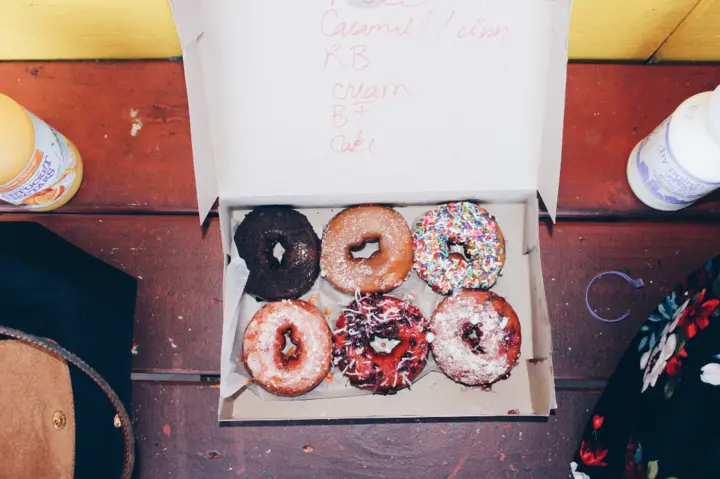6 warning signs that you are eating too much sugar
From an early age, the idea that chocolates, cakes, sweets and soft drinks should be eaten in moderation is instilled because our favorite foods are full of these things, and overeating them is bad for our health.
Show key points
- Consuming too much sugar is linked to various health issues such as acne, weight gain, high blood pressure, skin aging, fatigue, and poor sleep quality.
- According to health guidelines, adults should consume no more than 30 grams of free sugars daily, while children have even lower recommended limits depending on age.
- High sugar intake can significantly contribute to weight gain due to excess calorie consumption and hormonal imbalances like insulin and leptin resistance.
- ADVERTISEMENT
- Research has shown that added sugars may contribute to elevated blood pressure, increasing the risk of cardiovascular diseases.
- Too much sugar can negatively affect your skin by accelerating aging through the formation of harmful compounds called AGEs.
- People who consume large amounts of sugar often experience poor energy levels and disrupted sleep, leading to a vicious cycle of sugar cravings.
- Reducing sugar intake can be achieved by making simple dietary changes like checking labels, switching to unsweetened options, and limiting sugary drinks.
How much sugar should we eat?

Free sugars — sugars added to food or beverages, sugars naturally found in honey, syrups, fruit and vegetable juices, juices and purees — should not make up more than 5% of the energy (calories) you get from food and drink every day." When dividing age-specific recommendations, this means:
• Adults should eat no more than 30 grams of free sugars per day
• Children aged seven to 10 should eat no more than 24 grams of free sugars per day
• Children aged 4 to 6 years should not eat more than 19 grams of free sugars per day
Recommend
How do you know if you are eating a large amount of sugar
First of all, if you know you're eating more sugar than you're allowed, you'll likely want to limit your sugar intake. Here are six signs and symptoms that will give you a clearer indication.
1. Acne

Do you suffer from acne and do not know the cause? Well, if you're a sugar lover, your sweet habit might actually be the cause. A 2018 study concluded that "daily consumption of soft drinks significantly increases the risk of moderate to severe acne." Another study reported that "sugary drinks and fatty and sugary products are linked to existing adult acne"
2. Weight gain
Eating too much sugar can "contribute to people getting a lot of calories, which can lead to weight gain." Being overweight increases the risk of multiple health problems, including heart disease, some cancers and type 2 diabetes. Added sugars – sweeteners added to foods and drinks to improve taste – are also high in calories and provide minimal nutrition. Other notable facts include high-sugar diets that contribute to prolonged high blood sugar, insulin resistance, and leptin resistance, which are associated with weight gain and increased body fat. In addition, these foods and drinks tend to be low in fiber and protein which are essential nutrients that help keep you full and satisfied.
3. High blood pressure

A 2011 study reported a link between sugar-sweetened beverages and high blood pressure. A 2014 study suggested that high blood pressure could be closely linked to the consumption of large amounts of added sugars in the diet. Evidence from epidemiological studies and experimental trials in animals and humans suggests that added sugars may increase blood pressure. High blood pressure is a risk factor for cardiovascular disease
4. Skin aging
Too much sugar in the diet leads to the formation of "advanced glycosylated end products (AGEs)," which are "harmful compounds that form when protein or fat combines with sugar in the bloodstream." These compounds play a role in diabetes and affect collagen formation in the skin. A study from the Department of Dermatology at Baylor College of Medicine reported that the higher number of AGEs in the body can lead to faster and more pronounced aging.
5. Lack of energy

Excess sugar can cause a lack of energy. You may get an initial boost of energy after eating sugar, but the consequences last much longer. If you feel tired regularly, the soda you drank earlier may be the cause." There is a possibility of craving more sugar as well. "Insulin lowers blood sugar levels to very low levels which can cause fatigue, irritability and hunger." Therefore, the natural reaction of our body is to provide it with more sugar to control the feeling of energetic again. This "quickly turns into a vicious circle."
6. Low sleep quality
Eating more sugar can lead to interrupted and restless sleep. A study looked at two groups of volunteers — one that was fed a controlled diet with a limited amount of sugars and fats, and a focus on fiber, and the second allowed them to eat whatever they wanted, whenever they wanted, and in what quantity. The research found that the second group consumed significantly more fats and sugars than the first group. Surprisingly, their diet had a direct impact on their sleep quality. These individuals reportedly took longer to fall asleep and spent less time in deep sleep. They also complained of restless sleep and woke up regularly throughout the night.
Tips to reduce sugar intake

It is recommended:
• Replace high-sugar items such as jam, syrup, honey, etc. with low-fat and low-sugar substances. Or even choose banana slices or low-fat cream cheese
• Check the nutrition labels before placing any item in your cart – choose the low-sugar version
• Reduce the amount of sugar you use when cooking
• Choose unsweetened whole breakfast cereals instead of frozen, sugary and packaged options
For drinks:
• Replace sugary soft and light drinks with water. Or, if you still need to fix your flavor, choose sugar-free or sugar-free drinks added. If you can't live without soft drinks, try diluting sugar-free juice with sparkling water.
• Limit the amount of unsweetened fruit juice to 150 ml per day
• Reduce or completely cut the sugar from morning tea or coffee. If you're having trouble cutting out any sweet flavors, try switching to sweeteners instead.








